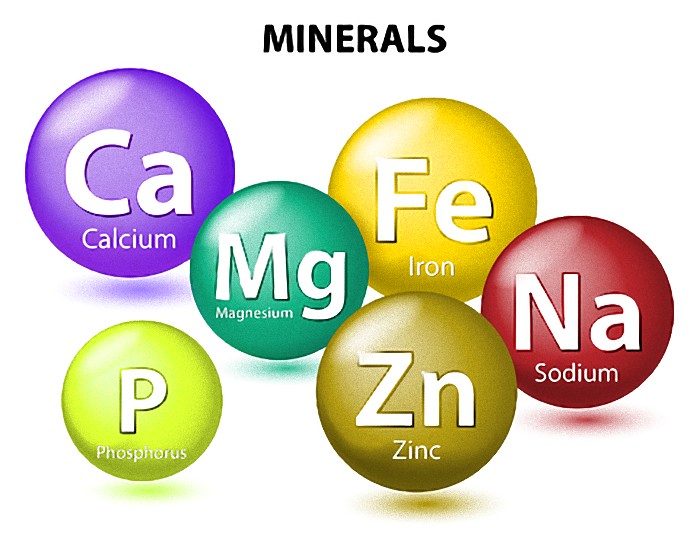This post is about my recent experience and why I think Hashimoto’s needs a different approach.
What is Hashimoto’s Hypothyroidism
Hashimoto’s Hypothyroidism is an Autoimmune disease where your body gradually destroys your thyroid gland leaving you with multiple symptoms such as
- Loss of outer eyebrow hair and increased loss of hair on head and body
- slow heartbeat
- discomfort in throat
- muscle aches and cramps
- weakness
- arthritis
- cold intolerance
- dry skin and hair
- lethargy / fatigue
- sleep disturbance
- brittle nails
- memory loss/poor concentration
- weight gain
- tingling or parasthesia in hands / feet
Each individual will have any number of these symptoms and they can vary with the level of thyroid deficiency and the length of time the body has been deprived of the right amount of hormone.
There are other causes of Hypothyroidism such as cancer surgery, radioactive iodine treatment of hyperthyroidism, heavy metal poisoning and more rarely a problem with the Pituitary gland that is not producing enough TSH – thyroid stimulating hormone.
Hashimoto’s Hypothyroidism is by far the most common (90-95%) and that is what I am focusing on today.
Treatment Options
Normal medical treatment has always focused on replenishing the body with thyroid hormone – either in the form of a synthetic T4 drug or desiccated thyroid tissue taken from pigs or cows. In the case of a surgically removed thyroid or one that has been destroyed by radiation then this may be the only option.
With Hashimoto’s I feel it is important to take a Functional Medicine approach to find and treat the root cause which is an Autoimmune reaction and to support the thyroid with the nutrition it needs for optimal function. There is frequently an underlying Adrenal imbalance as well and patients often say that they have had extreme stress previous to symptoms, or ongoing. There may also be a history of Epstein Barr infection or other herpes infections, all of which can affect the immune system long-term.
It is very important to look at the medical history as the Thyroid may have been under attack for quite some time before multiple symptoms appear and a diagnosis sort. It is also possible that other Autoimmune problems are present, especially Coeliac disease or Gluten intolerance. This could mean that the digestive tract is damaged, already reacting to foreign proteins and not absorbing all the nutrients we need.
Hashimoto’s is not something that I think you should try and treat yourself and it should be monitored with appropriate blood tests but there are certain actions that you can take yourself that can help balance your system, boost your health and at the same time help your Doctor see the overall picture of the effects of the disease and the treatment.
If you think you may have Hashimoto’s rather than any other cause of fatigue then the first thing you could do is set up a chart to record your Basal Temperature. This is the temperature that you body falls to at night when you are sleeping. Have a thermometer by your bed and as soon as you wake take your temperature, in your armpit. Make sure that it is right in your armpit and leave it for 2-5 mins to get an accurate reading. If you have low thyroid function then it is likely to be several points lower than the normal range of 36.4C -36.7C . Do this for at least a week so that you have a record to show your doctor and you can also carry on to show any reaction to treatment.
My own approach
I have thought for years that my Thyroid was slightly under-active and have not been good with aerobic activity, climbing hills etc. since having Glandular Fever aged 20. I lost my outer eyebrows ages ago. I have been aware of my pulse being slow and irregular (43 -55) for over 10 years but have had ECG’s and told it wasn’t anything to worry about. It wasn’t until a medical showed a TSH of 5.25 and a slightly low FT4 of 11.8 that I thought I should probably do something about it if I was to continue to be healthy.
It also made me realise that an increasing amount of tingling and parasthesia in my hands was probably more likely to be caused by my Thyroid than by neck arthritis. I felt, maybe wrongly, that if I went to my GP I would just be put on synthetic T4 Thyroid pills and from everyone I have dealt with over the years I knew this was not the cure all that it is often claimed to be.
My plan was to first optimise my nutrition to see if that had any effect on my symptoms. I started by taking Bio-Selenium 200 as that is know to be essential for Immune and Thyroid function and it is a nutrient that many in the UK are know to be lacking. Ten days later I started a Basal Temperature chart and also recorded my pulse and blood pressure every few days. The first few days my temperature was in the range 34.1-34.4 C which is 2 degrees below normal therefore I decided to add an amino acid L-Tyrosine 500mg as I had read that this could possibly stimulate the available thyroid hormone. I realise that I was experimenting but I researched and the only side effect was said to be that if you suffered with migraine headaches it may trigger them. I never get headaches since giving up gluten and dairy and therefore thought it was unlikely to affect me.
Within 2 days my Basal Temperature was up 35.5-36.0 C and I actually felt very warm and my circulation was improved with warm feet – something that is a complete anomaly to me! This was in total contrast to the typical UK weather that had suddenly taken a dip back to cool and wet. That evening I started to get a headache and by the next evening it was continuous and worse – I felt like I had been kicked in the back of the head. Taking painkillers lessened it but then a couple of days later I started to get an uncomfortable feeling in my throat and a tight sensation on swallowing. Now this seemed extreme for a natural protein that is found in chicken, turkey and that I thought I probably was getting sufficient quantities of through my diet and so, listening to what my body was telling me, I stopped taking the L-Tyrosine. During the time I was taking it the tingling in my hands disappeared and I felt more energised and alert but I have since read that if you have autoimmune problems it may be too stimulating and cause more inflammatory reaction. If self medicating – even with nutritional supplements – always do thorough research!
The tingling in my hands returned, the throat gradually returned to normal and my Temperature remained above 35C. On to a new plan…
Ashwaganda, a popular Ayurvedic medicine used for a wide variety of disorders, is something I have used before to treat stress and fatigue. It is an adaptogenic herb with the ability to get the body to regulate itself. It has been proven to work well in regulating the thyroid gland when additional T4 and/or T3 is required or if the rate of metabolism is slow. Scientists concluded that people with hypothyroidism benefited from Ashwaganda due to it’s ability to raise T4/T3 and its anti-inflammatory, antidepressant, antioxidant and nerve protecting qualities. It is important to buy good quality herbs therefore I started on 1 capsule twice a day of fresh organic Ashwaganda Root Capsules.
I also added Licorice (Glycyrrhiza Glabara) that supports immune function and with ingredients that heal the digestive tract, are anti-inflammatory, anti-viral and anti-microbial. From my latest research it does look like there may be a connection to Autoimmune problems stemming from Epstein Barr infection that can stay dormant in the body therefore adding supplements that have anti-viral properties could help.
So far, so good. I am generally sleeping better and have plenty of energy. The peripheral neuralgia is improving again and a month on my temperature has not fallen below 35C and I haven’t had any palpitations. I will carry on for another month with this plan as well as my usual Low Carb High Good Fat diet, Methyl B Vitamins, Vitamin D and keep eating nuts and seeds for zinc, Liver or pate for Ferritin levels, Lemon Balm (anti-viral) and Green Tea and Resveratrol in the form of Red Wine plus my Sizzling Minerals to make sure I get good magnesium levels and all the other minerals I need to help cellular function.
I will get a repeat blood test and if I have to take a thyroid hormone then I would definitely prefer to take a natural one that provides all the elements needed and not just artificial T4 – thyroid function is complex. Functional Medicine is about looking for the root cause, assessing all the signs and symptoms and adjusting diet and lifestyle.
This might sound a lot but it just becomes part of what you do – listen to your body, assess signs and symptoms and tweek as necessary! Those that don’t take time to maintain their health may end up losing time due to ill health!







